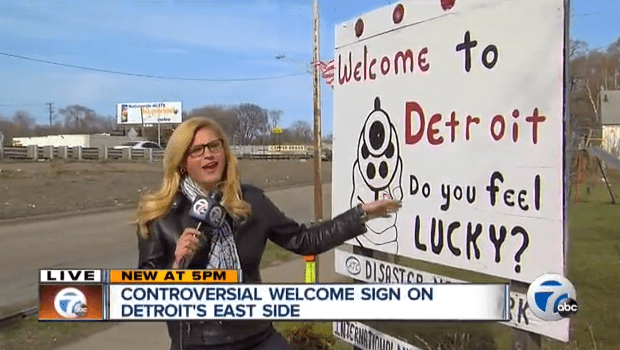I’ve asked for permission to reprint this entire guest editorial from attorney and Oakton (MI) sociology and criminal justice teaching adjunct Chester Kulis, published in Wilmette Life. Nope. So I’m presenting the first few ‘graphs under the fair use provisions, so you can get a feel for Mr. Kulis’ argument, and then link over to the paper for the rest. As President Nixon said (with tremendous unintentional irony), I want to be perfectly clear: The Truth About Guns is catholic on gun issues. As a publisher, I welcome all perspectives on gun rights and responsibilities. That said, we have a strict anti-flaming policy: no flaming the website, its authors or fellow commentators. You are free to attack an argument as passionately as you please, but personal insults will be removed. Persistent offenders will be permanently banned from commenting.
I am a retired federal law enforcement officer who worked on gun-trafficking cases. My 20-year-old brother, Michael, was killed in an armed robbery on the CTA in 1972 when he was coming home from Loyola University. I have known several friends who were shot or killed with guns. I strongly support Chicago’s handgun ban.
Under Chicago’s gun ordinance, about 15,000 guns are seized and then melted down each year from individuals who were illegally carrying them in their cars or on the street. Many were involved in gang activity, assaults or domestic disturbances. Chicago citizens and police are better off with these guns destroyed. If these handguns were left in circulation, some no doubt would have been turned against us. Unlike Chicago, Memphis police resell confiscated guns. We now know what became of two of these recycled guns: One was involved in the shooting at the Pentagon, and another in the shooting at the federal court house in Las Vegas.
Where do guns in Chicago originate? They come from outside Chicago, often from the suburbs and from states like Mississippi and Alabama where there is no gun control whatsoever. The lack of meaningful gun regulation nationwide is the real “gun control” problem, not the Chicago ordinance.
The lead plaintiff in the challenge to the Chicago ordinance in the U.S. Supreme Court admitted that a few years ago a shotgun was stolen in a burglary of his house. If he had handguns, they too would now be on the street and be used against us law-abiding citizens. Stolen guns are one of many reasons Chicago is trying to cut down on guns in the home. A gun in the home is not the only way — or the wisest way — to protect our family.
Read the rest here.





As I commented elsewhere, I think some people have the attitude, skills and respect to handle weapons, but many don't. Think about the drivers that don't take care of their vehicles, don't follow the laws, drive distracted, inflict road rage, etc. You see them every day. Should these people have guns, too?
I agree but the million dollar question is, who decides? Who decides what constitutes the proper "attitude, skills and respect?"
Okay, I just thought about them. Do you advocate taking these people's cars away? If not, why not? And if you do, how do we deprive people of property they legally own?
These are not trivial or rhetorical questions. It's easy to imagine a world without guns. It's also easy to imagine a world where it never gets cold and where rainbows and puppy dogs and unicorns frolic in the meadow.
What's not easy is reconciling the fact that there are circa 300 million privately owned firearms in circulation, and the fact that if a criminal needs to get a gun, he can get one without too much difficulty (and BTW this is true in countries that have strict gun controls as well.)
The flaw in Kulis' argument is that it assumes that taking guns out of the hands of law abiding citizens will also disarm criminals. There's no evidence – anywhere – that supports this contention, even if you don't factor in the issues of federalism (i.e. each state will have different laws regarding the ownership and purchase of firearms) and of course, that pesky ol' Constitution, which also has to be taken into consideration.
I do advocate making operator's permits much harder to obtain, and much easier to lose. I recall reading that a German tennis player was convicted of drunk driving in the 80s, paid a hefty fine and went to a prison or work farm for several months. I've never heard a story like that here.
I agree that it is difficult to decide who should have guns, but the answer certainly isn't to advocate that as many people as possible run out and buy guns to stop crime.
Your last paragraph pretty much sums up the reality of gun control. Not much else need be said.
After reading the full article, I take issue with this statement, which is misleading:
“Nationally handguns are used to kill criminals about 250 times per year. For every criminal killed in self-defense with a handgun, nearly 100 citizens die in suicides, homicides involving friends and family, and accidents.”
Earlier in the article, the author mentions that most ‘citizens’ are killed by suicides (56% of all firearm deaths are suicides). You can take that number out as a criticism against gun violence – people who want to kill themselves are going to do it. It’s not the guns fault. (It’s never the guns fault).
Homicides involving friends and family are still criminal homicides. Who’s doing it makes no difference. The firearms death to children is lower than buckets of water. All of that, and we still must consider that the number of criminals *killed* by firearms is irrelevant to the number of crimes *stopped* by firearms, which is estimated between 800,000 and 2,500,000.
Accidental firearm deaths are estimated at 1,100 per year.
When viewed objectively, firearms pose little danger overall compared to other objects and in the hands of law abiding citizens, are among the safest things there are, strange as it sounds.
Comments are closed.